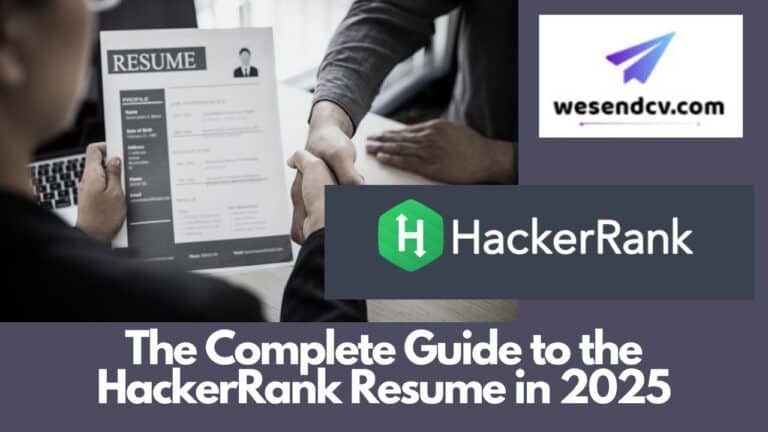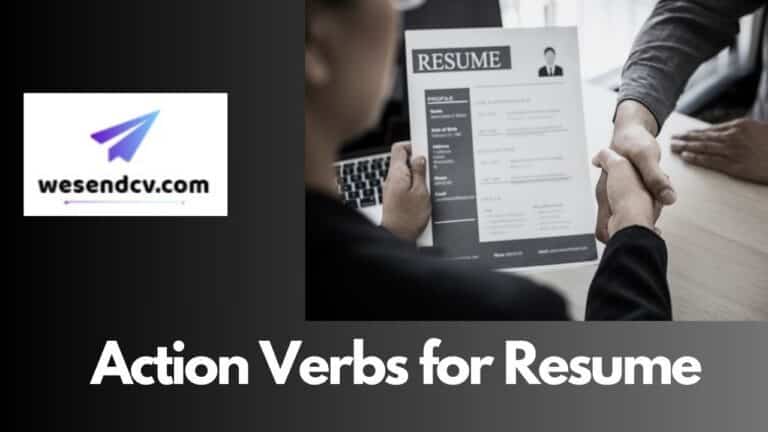Main Highlights of Content
ToggleWhat Goes Into the Work Experience Section of a Resume
The work experience section is one of the most critical parts of a resume. It provides recruiters and hiring managers with insights into your professional background, key accomplishments, and relevant skills. This section serves as proof of your abilities, demonstrating how your past roles have prepared you for the job you are applying for.
A well-crafted work experience section can set you apart from other candidates. However, knowing what to include and how to format it correctly is essential to maximize its impact.
In this guide, we will cover everything you need to know about structuring the work experience section of your resume, including best practices, common mistakes to avoid, and ways to make your experience stand out.
If you are looking for tools to enhance your resume, consider using Free Resume Tools to optimize your application.
Why Is the Work Experience Section Important?
Recruiters often spend just a few seconds scanning each resume, and the work experience section is usually their primary focus. This section tells employers:
- Where you have worked previously.
- The responsibilities and tasks you handled.
- The achievements and contributions you made.
- How your experience aligns with the job you are applying for.
Since hiring managers use this information to assess whether you are the right fit for a position, presenting your work experience effectively is crucial.
If you want to send your resume via email professionally, check out How to Send Your Resume by Email: A Step-by-Step Guide with Examples for helpful tips.
What to Include in the Work Experience Section of Your Resume
Your work experience section should be clear, structured, and easy to read. Below are the essential components to include:
1. Job Title
The job title is one of the most critical elements because it quickly informs recruiters about your past roles. Ensure it is accurate and reflects your responsibilities.
Example:
Software Engineer
2. Company Name and Location
Mention the full name of the company along with its location (city and country). If you worked remotely, you can indicate that as well.
Example:
ABC Tech Solutions – New York, USA
XYZ Marketing Agency – Remote
3. Employment Dates
List the start and end dates of your employment in a consistent format. If you are still working in the role, you can write “Present” instead of an end date.
Examples:
- March 2020 – Present
- June 2018 – September 2022
4. Job Responsibilities and Duties
Provide a concise summary of your key responsibilities. Keep this section brief and focus on tasks that align with the job you are applying for.
Example:
- Developed and maintained web applications using JavaScript, React, and Node.js.
- Managed a team of four developers and coordinated project timelines.
- Analyzed system performance and implemented optimizations to improve efficiency.
5. Key Achievements
Employers value measurable results, so highlight accomplishments that showcase your contributions to the company. Use numbers and percentages when possible.
Examples:
- Increased website traffic by 35% through SEO and content marketing strategies.
- Boosted sales by 20% by implementing targeted digital advertising campaigns.
- Reduced software load times by 50% through performance optimizations.
For guidance on tailoring your resume for email applications, explore How to Send Your Resume via Email.
Best Practices for Listing Work Experience on a Resume
1. Use Reverse Chronological Order
List your most recent job first and work backward. This format is preferred by most recruiters because it shows your latest experience upfront.
2. Keep It Concise and Relevant
Avoid listing every single job duty. Instead, focus on responsibilities and achievements that are relevant to the job you are applying for.
3. Use Bullet Points for Readability
Bulleted lists make it easier for hiring managers to scan through your experience quickly.
4. Incorporate Action Verbs
Start each bullet point with a strong action verb to make your contributions sound impactful.
Examples of Strong Action Verbs:
- Led
- Developed
- Designed
- Managed
- Implemented
- Increased
- Optimized
5. Quantify Achievements Whenever Possible
Numbers provide concrete evidence of your contributions. If possible, include metrics such as:
- Percentage increases or decreases.
- Revenue growth.
- Customer satisfaction ratings.
- Productivity improvements.
Common Mistakes to Avoid in the Work Experience Section
1. Including Irrelevant Jobs
While it may be tempting to include every job you have ever had, focus only on roles that are relevant to the position you are applying for.
2. Being Too Vague
Instead of writing generic statements, be specific about what you accomplished.
Weak Example:
- Responsible for increasing sales.
Strong Example:
- Increased monthly sales by 25% through targeted marketing campaigns.
3. Overloading with Jargon
Use clear and concise language. Avoid excessive technical terms unless necessary for the industry.
4. Listing Only Responsibilities Without Achievements
Recruiters want to see not just what you did but how well you did it. Make sure to highlight achievements.
For more guidance on crafting a strong resume, check out Free Resume Tools.
How to Format the Work Experience Section Correctly
A well-structured work experience section should be easy to read and professional. Here’s an example of an ideal format:
Example of a Well-Formatted Work Experience Section
Digital Marketing Manager
XYZ Marketing Agency – Los Angeles, CA
January 2019 – Present
- Developed and executed digital marketing strategies, increasing website traffic by 40%.
- Managed a team of five marketers, overseeing campaign development and execution.
- Improved social media engagement by 50% through targeted content strategies.
- Implemented SEO best practices, leading to a 20% boost in organic search rankings.
For more insights on email applications, visit What to Write in an Email When Sending a Resume.
How to List Internships or Freelance Work in the Work Experience Section
Internships
If you are a recent graduate or have limited work experience, internships are valuable additions to your resume.
Example:
Marketing Intern
ABC Media – New York, NY
June 2021 – August 2021
- Assisted in creating marketing campaigns that boosted customer engagement by 15%.
- Conducted competitor analysis to identify trends and opportunities.
Freelance Work
Freelance experience is also valid and should be listed professionally.
Example:
Freelance Graphic Designer
Self-Employed – Remote
January 2020 – Present
- Designed websites, logos, and marketing materials for over 30 clients.
- Increased client revenue by 25% through targeted branding strategies.
What If You Have No Work Experience?
If you are applying for your first job, you can still create a strong work experience section by including:
- Internships
- Volunteer experience
- Academic projects
- Freelance or part-time work
For help writing a strong resume without prior work experience, check out Free Resume Tools.
Conclusion
The work experience section is one of the most important parts of a resume, as it highlights your professional background, skills, and achievements. To make this section stand out:
- Use a clear and consistent format.
- Focus on accomplishments rather than just job duties.
- Quantify results with numbers and metrics.
- Keep it concise and relevant to the job you are applying for.
By following these best practices, you can create a compelling work experience section that captures the attention of recruiters and helps you secure job interviews.
For a step-by-step guide on sending your resume via email, check out How to Send Your CV by Email: A Step-by-Step Guide with Examples.
By applying these tips, you will present yourself as a strong candidate and improve your chances of landing your desired job.







